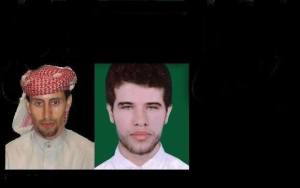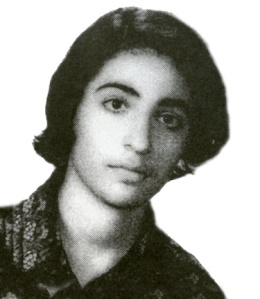دریافتی:
طلوع تازه ی سيمرغ در راه است
یاد و نام هر دوی شما بخیر و جاودان
رهایی بهتر است از بند، نقطه
۱۳۹۲ بهمن ۱۱, جمعه
۱۳۹۲ بهمن ۹, چهارشنبه
بهارخواني يا مرثيه : مجید نفیسی
بهارخواني يا مرثيه
بزغاله ي من!
هميشه پيشاپيش مي رفتي
و كاكل سياهت
بر پيشاني تاب مي خورد.
سبك بودي
سرسخت بودي
و مي خواندي: "نمير!
بهار خواهد آمد."
افسوس! بهارخواني ي تو
مرثيه ي من شد.
برفها آب نشد
و مرگ ترا دوشيد
و آفت بزرگ بزرگ
در گله افتاد.
آه! چه سحري ست
در پستانهاي ي افتاده ات
كه هنوز مرا
به دنبال تو مي كشاند.
۲۷ اكتبر ۱۹۸۶
مجید نفیسی
A poem: "Spring Song or Elegy":
http://www.iroon.com/irtn/blog/3578/
Chapter 4-J "Modernism and Ideology in Persian Literature":
http://www.iroon.com/irtn/blog/3577/
۱۳۹۲ بهمن ۳, پنجشنبه
شنا در خزر: مجید نفیسی
شنا در خزر
به ياد عزت طبائيان
تنها يك بار به دريا رفتيم
و گذاشتيم تا آب بر پوست تنمان دست بكشد
و ما را از همه ي پوششها تهي كند.
خزر چون آبگيري آرام بود
و درِ همه ي گنجينه هايش را
بر ما گشود.
كُپورهاي كنجكاو بگرد ما چرخ مي زدند
و خزه هاي دريايي روي آب شناور بودند.
گوش ماهي ها در زير آب مي درخشيدند.
ما گوش مي داديم، گوش مي داديم
انگار ميخواستيم كسي از آن سو با ما سخن گويد
و از توفاني كه در راه بود آگاهمان سازد.
آنگاه من دستهايم را چون تخته شنايي گشودم
و تو بر روي آن شناور شدي.
آه چه شيرين بود
تماس دست من
با شكم صاف و تختِ تو!
چشمانت در غروب آفتاب مي درخشيد
و آب بجاي من
بر سُرين و پستانهايت دست مي كشيد.
تو چون كودكي كه تازه شنا مي آموزد
دستها و پاهايت را تكان مي دادي
و با شتاب پيش مي رفتي.
من گاهي دستهايم را مي دزيدم
تا تو خود سبكباري ي آب را دريابي.
نه! هيچ كس نمي توانست
اين لحظه را از من بگيرد.
در برابر ما دريا آغوش گشوده بود
و سايه ي هيچ ابري در آسمان ديده نمي شد.
در پشت سر، تنها جنگل سبز
از فراز كوه خم شده
نگران به ما نگاه مي كرد.
۳۰ مه ۲۰۰۵
مجید نفیسی
Chapter 4-I”Modernism and Ideology in Persian Literature”:
http://www.iroon.com/irtn/blog/3543/
۱۳۹۲ دی ۲۶, پنجشنبه
۱۳۹۲ دی ۲۲, یکشنبه
پيشنهادي براي بالا بردن ارزش پول هموطن جان چه شد که پس رفتیم؟: هادی خرسندی
پيشنهادي براي بالا بردن ارزش پول
قرن ها از همه جلو بوديم
صاحب فکر و کار نو بوديم
سوی آينده يک نفس رفتيم
هموطن جان چه شد که پس رفتيم؟
ما که مشروطه را علم کرديم
پای ديکتاتوری قلم کرديم
قدرت زورگوی کم کرديم
نه دگر زير بار کس رفتيم
هموطن جان چه شد که پس رفتيم؟
ما که از عشق روی آزادی
دل پر از آرزوی آزادی
پر گشوديم سوی آزادی
از چه همواره در قفس رفتيم
هموطن جان چه شد که پس رفتيم؟
گوئيا خصم خويشتن هستيم
يا که با خصم خويش همدستيم
خوب وقتی که دست خود بستيم
خودمان خدمت عسس رفتيم
هموطن جان چه شد که پس رفتيم؟
ما به اين آب و خاک بد کرديم
دعوت از دزد و ديو و دد کرديم
گل و گل بوته را لگد کرديم
پس به دنبال خار و خس رفتيم
هموطن جان چه شد که پس رفتيم؟
ما که با آن علائق محسوس
عاشق غرب، سرسپرده ی روس
رفته تا ماورای اقيانوس
يا که تا آنور ارس رفتيم
هموطن جان چه شد که پس رفتيم؟
جنگ با بدنهادها کرديم
ولی البته که خطا کرديم
سنگر خويش را رها کرديم
دسته جمعی به تيررس رفتيم
هموطن جان چه شد که پس رفتيم؟
نه به ما سهمی از حقوق بشر
نه از آن روزگار رفته خبر
از گذشته شديم کوچکتر
لوبيا آمديم عدس رفتيم
هموطن جان چه شد که پس رفتيم؟
تفرقه بايد از ميان برود
خون غيرت به هر رگی بدود
قافيه ميشود غلط، بشود
ما به غفلت ره عبث رفتيم
هموطن جان چه شد که پس رفتيم؟
شيرزن های ما به زندانند
آنطرف نيز شيرمردانند
جمعی از خلق ما به ميدانند
جمع ديگر پی هوس رفتيم
هموطن جان چه شد که پس رفتيم؟
متحد ميشويم باز، آری
ميخورد خصم ضربه ی کاری
با چنان قدرتی که پنداری
با مگس کش پی مگس رفتيم
هموطن جان چه شد که پس رفتيم
هادی خرسندی
۱۳۹۲ دی ۲۱, شنبه
۱۳۹۲ دی ۱۸, چهارشنبه
سه شب به ياد عزت طبائيان*٬ بفارسی و انگلیسی : مجید نفیسی
سه شب
به ياد عزت طبائيان*
شب يكم
"ديشب كه باران آمد
يارم لب بام آمد
رفتم لبش ببوسم
نازك بود و خون آمد."
يكشنبه، سه راه آذري:
كارگرانِ صبح از قربانگاه باز مي گردند
كارگرانِ شب به قربانگاه مي روند
تنها منم
كه بر قربانگاه خود ايستاده ام.
"از شترِ نحر شده در انقلاب
شما را چه رسيد؟
دستهايتان را
هنوز خالي مي بينم."
خودروي گشتي، رد مي شود.
"تا صيد نشدهايم برويم
عزت خودش خواهد آمد."
شب در "شادآباد" دام مي گسترد
خانه ي كوچك
چون قلعه اي خاموش، در مي گشايد.
ابراهيم نيستم و با اين همه
از قربانگاه برمي گردم
شايد اسماعيلِ خود را باز بينم.
"ماهي آزادست
از خيابان منوچهري خريدمش."
نفت، ته مي كشد
و ما ماهي ي نيمه خام را
به نيش مي كشيم.
ماهي، ماهيچه ي عزت است
و فلس لغزنده اش
در دستهاي خالي من.
آه، اين خداي آدمخوار
فديه نمي پذيرد
بايد از تنِ دلدار خود بچشم
تا روحش در تنم خانه كند.
آيا راه بازگشتي بجا مانده است؟
در كوچه هاي شهر
سرگردان راه مي روم
با فكرِ تناسخ در سرم
و طعمِ ميت در دهانم.
شب دوم
"خونش چكيد تو باغچه
گل سرخي در آمد
رفتم گلش بچينم
پر پر شد و هوا رفت."
دوشنبه، چهار راه لشگر:
در مي زنيم.
"عزت گرفتار شده
لگن خاصره اش شكسته."
در اين خانه ي قديمي
تنها دو زن زندگي مي كنند:
يكي پير، يكي كر.
"محفل ما نابود شد."
از قربانگاه يك ماركسيست بزحمت گريخته ام
تا به قربانگاه يك بهايي پناه آورم.
هان! مرا عبرتي ست؟
در حياط متروك
جايي كه برگهاي زرد، خش خش ميكنند
و ماهي سرگردان
در حوض سبز راكد، تاب مي خورد
رازي ناخواسته بر من گشوده مي شود:
پيكر خونين "طاهره"**
هنوز بر سر چاه، آويزان است:
"طاهره! طاهره!
اسماعيلِ مرا نديدي؟"
در عمارت قديمي
تنها صداي خود را مي شنوم.
شب سوم
"رفتم پرپر بگيرم
اهو شد و صحرا رفت
رفتم آهو بگيرم
ماهي شد و دريا رفت."
سه شنبه، ميدان راه آهن:
جنگزدگان از قربانگاه باز مي گردند
سربازان به قربانگاه مي روند
تنها منم
كه بر قربانگاه خود ايستاده ام.
آواره اي نوميدانه
بر در آهني مسافرخانه مي كوبد
و پلكهاي پدرِ عزت
با سنگيني باز مي شود:
"خيرست!
خوابِ آب و ماهي ديده ام.
خيرست!"
مي خواهم از دخمه ي خود بانگ زنم:
پدر! پدر!
من آن ماهي را
فديه ي اسماعيلِ خود كردم
اما خداي آدمخوار من نپذيرفت.
كاش ابراهيم نبودم
كاش يونس بودم
خفته در كامِ نهنگ.
نمي دانم در شكم مادرم
يا در شكمِ خاك؟
گورزادم يا زنده بگور؟
نمي دانم.
كبوتر پرنده
آهوي دونده
ماهي رونده
رفتم گُلَت بچينم.
۱۸ دسامبر ۱۹۸۶
مجید نفیسی
*-
عزت همسر اول من بود. او در ۲۹ شهريور ۱۳۶۰ در تهران گرفتار شد و در ۱۷ دي
۱۳۶۰ در زندان اوين به خاك افتاد. اين شعر، شرح سه شبي ست كه بر من گذشت
پس از دستگيري او.
**- طاهره - مرگ ۱۸۵۲ – شاعر بانوي ي دلير بابي.
Three Nights
In Memory of Ezzat Tabaian*
In Memory of Ezzat Tabaian*
First Night
“Last night when it was raining
My love came to the roof,
I went to kiss her lips
They were delicate and bled.”**
Sunday, Azari Crossroad:
The morning workers are returning from their altar,
The nighttime workers are going to their altar.
It is only me, standing
Upon my sacrificial altar.
“What did the Revolution give you
Of her slaughtered camel?
I still see your empty hand.”
A patrol drives by.
“Let’s go. We’ll get caught.
Ezzat will come herself.”
The night falls like a net over Shadabad town
And a little house opens like a castle.
I am not Abraham
But I am returning from my altar.
Perhaps I will see my Isaac again.
“It’s salmon
Bought it from Manuchehri St.”
The kerosene has run out
And we bite into half-raw fish.
The fish is the flesh of Ezzat
With her slick scales in my empty hand.
This cannibal God does not accept
Any ransom.
I must taste the flesh of my love
To find her soul in my body.
Is there a way to return?
I am wandering in alleys
With reincarnation in mind
And the taste of death in my mouth.
Second Night
“Her blood dripped in the flowerbed
And a rose grew out of the earth.
I went to pluck her flower
It fell apart; and flew.”**
Monday, Lashgar Square:
We knock on the door.
“Ezzat was captured.
She’s broken her hip.”
In this old mansion
Only two women live:
One old, the other deaf.
“Our assembly was destroyed”.
I have barely fled
The sacrificial altar of a Marxist
To take refuge in a Bahai’s altar.
Is there a lesson here for me?
In the deserted courtyard
Where yellow leaves rustle
And a lonely gold fish
Circles in a stale green pool
A secret is suddenly revealed to me:
The bloody body of Tahereh*** is still
Hanging inside her prison well:
“Tahereh! Tahereh!
Have you seen my Isaac?”
The old building echoes my words
Third Night
“I went to catch the flying bird,
It became a gazelle and ran to the plain.
I went to catch the gazelle,
It became fish and joined the sea.”**
Tuesday, Railroad Place:
The war refugees are returning from their altar,
The young soldiers are going to their altar.
It is only me, standing
Upon my sacrificial altar.
A refugee hopelessly bangs
On our hotel’s iron door.
Ezzat’s Father opens his heavy eyelids:
“It is a good omen
I saw water and fish.
It is a happy dream.”
I want to shout from my cell:
“Father! Father!
I offered that fish
As a ransom for Isaac
But my cannibal God declined.”
I wish I were not Abraham.
I wish I were Jonah
Gorged by a whale.
Am I in the belly of Earth
Or in the womb of my mother?
Am I born in a grave
Or buried alive?
I don’t know.
Flying dove
Fleeing gazelle
Fleeting fish
I went to find your flower.
December 18, 1986
Majid Naficy
*- Ezzat was my first wife. She was abducted on September 19, 1981 in Tehran and executed on January 7, 1982 in Evin Prison. This is the story of my first three night after her captivity.
**- A Persian folk song which I have divided in three parts.
***- Tahereh (d. 1852) was a Babi poet who boldly removed her veil in public. Babis and Bahais broke from Shiism in Iran in the early nineteenth century and since then they have been under severe persecution.
“Three Nights”, A Poem in Memory of Ezzat:
http://www.iroon.com/irtn/blog/3451/
Chapter 4-G of “Modernism and Ideology in Persian Literature”:
۱۳۹۲ دی ۱۶, دوشنبه
پیام: جعفر مرزوقی (برزین آذرمهر)
پیام
«دل به دو جایان نا همرنگ»* را
گوئید:
بر نمی تابید
گر
دریاگری را
لنگراندازید
در پناه برکهای لغزنده چون ماران،
در گل ولای خزهها بستر اندازید
عرض خود بردن به رویارویی توفان سهم آسا
سخت بیهوده است
فتح دریا
- گر نمی دانید-
زهره می خواهد!
گرده توفان شکستن
عرضه می خواهد!
جعفر مرزوقی (برزین آذرمهر)
*اصطلاحی از نیما یوشیج
۱۳۹۲ دی ۱۵, یکشنبه
بر پیشانی سنگی خشم: مجید نفیسی
بر پیشانی سنگی خشم

می خواهم بكوبم، بكوبم
با پتك سنگینِ دستهایم
دیوارهای این باروی بلند را
چه باك اگر
آوار هزاران سنگ
بر من فرو ریزد.
می خواهم بروبم، بروبم
با جاروی بزرگِ دستهایم
اصطبل های این باروی كهن* را
چه باك اگر
گله ی هزاران گاومیش
بر من بتازد.
مردی از پشت پنجره
سوت زنان می گذرد
انگار می گوید: "آرام باش
آبی بنوش
و خشم خود را فرو خور".
نه! نه!
دوستت دارم ای شورِ دادخواهی!
بگذار این شعر را
بر پیشانی سنگی ات بنویسم
كه هیچ ستمگر
تنها به جادوی عشق
دادگر نمی شود.
۲۷ ژانویه ۱۹۸۶
مجید نفیسی
*- اشاره است به پنجمین خوانِ هركول: پاك كردن اصطبل های آجیاس.
A poem: “On the Rocky Forehead of Anger”:
http://www.iroon.com/irtn/blog/3431/
Chapter 4-F of “Modernism and Ideology in Persian Literature”:
www.iroon.com/irtn/blog/3430/
اشتراک در:
پستها (Atom)


![majid-nafisi-c[1]](http://eshtrak.files.wordpress.com/2014/01/majid-nafisi-c1.jpg)





